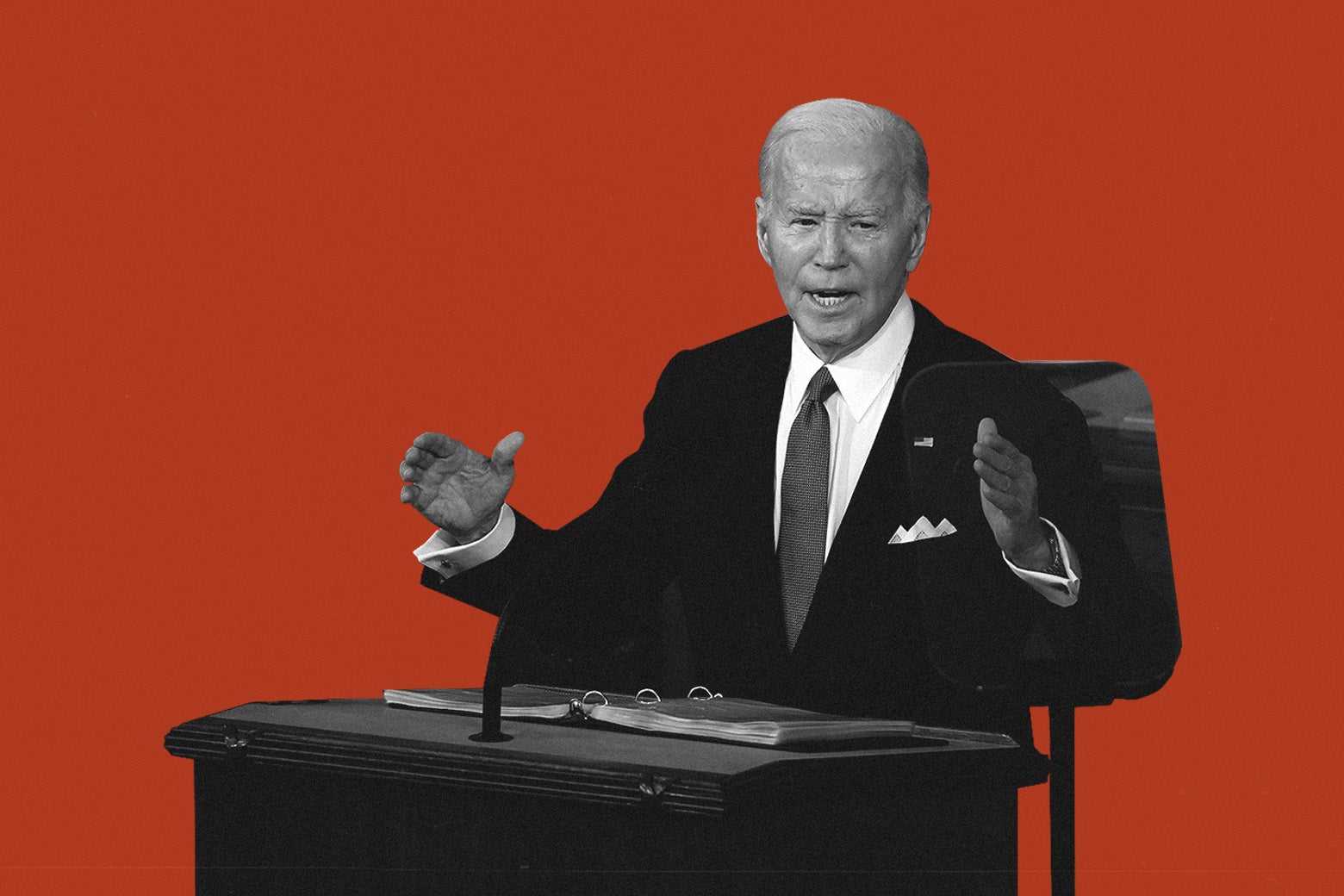On Thursday night, President Joe Biden gave an energetic and compelling State of the Union address that centered reproductive freedom. It was the second topic he addressed, behind only threats to democracy, abroad with Putin and at home with Trump. In turning to reproductive rights, Biden was able to showcase the powerful stories of his invited guests, like Kate Cox and Latorya Beasley, to underscore the real harms of anti-abortion policies.
There was a lot to appreciate in his speech, but there were missed opportunities. Reproductive rights and justice advocates immediately noticed that Biden did not say the word “abortion”—a recurring issue for the president. But we noticed the omission of another word, which we think is possibly even more significant given the coming election: Comstock.
Anthony Comstock was an anti-vice crusader who convinced Congress in 1873 to pass a law (known as the Comstock Act) that banned the mailing of anything indecent or immoral, including “any article or thing designed or intended for the prevention of conception or procuring of abortion.” The law, which also covers express mail services, has not been enforced for nearly a century, long before the Supreme Court decided Roe v. Wade and made the Comstock Act presumptively unconstitutional. And even when it was enforced in the early 1900s, the courts had overwhelmingly interpreted the statute to only apply to “unlawful” abortion and contraception. Today, this interpretation would ensure that the Comstock Act doesn’t threaten abortion in the states where it is legal.
Nevertheless, the anti-abortion movement is trying to revive this archaic law. Not only are activists arguing that the law has come back to life after Roe was overturned, but that the long-standing established precedent interpreting the act was wrong. They argue that this law, written at a time when women couldn’t vote, applies to all (not just unlawful) abortion. In their view, therefore, Comstock should function as a de facto national abortion ban.
These anti-abortion activists reason that because everything used to induce an abortion—pills, instruments, supplies, and more—travels through the mail in some form, the Trump administration could use the Comstock Act to shut down abortion everywhere, even in states where it is legal. After all, if abortion providers aren’t able to use the mail or express delivery services to obtain their supplies, how can they provide care to patients?
Anti-abortion extremists have tried, in some ways, to be quiet about this argument, recognizing that it could harm Trump’s campaign. However, they also haven’t been hiding their plans: They recently raised the Comstock Act in arguments to the Supreme Court in a case concerning abortion pills and discuss it explicitly in a strategy paper about the first 180 days of a Republican administration. They are positioning the Comstock Act, which lacks any exceptions for the pregnant patient’s health or life, fetal anomaly, rape, or incest, to end abortion nationwide.
Some politicians excel at creating monsters, often out of nothing. They have learned that fear can sometimes drive voters more than hope. Comstock could be a monster—a real one with a real and devastating threat to abortion in the near future. Yet, Democrats have failed to force the issue and make “Comstock” a word that everyone knows, a word that instills fear and propels people to vote accordingly.
In the State of the Union, Biden tried to sell a message of hope: Elect me and I will restore Roe. But the restore-Roe framework may not be motivating on its own. First, Biden has little control over whether Congress can overcome enormous hurdles, particularly the Senate filibuster, to pass a law protecting abortion rights for him to sign. Voters may ask: If this is something in Biden’s control, why hasn’t he done it yet? Second, voters in blue states—his base—may feel safe in their enclaves of protected abortion rights, not recognizing how frail those rights are. They need to understand that their rights are on the chopping block too. And finally, many in the reproductive justice movement feel that Roe was flawed and is not the end goal we should strive for.
This is not to say that a message of hope should be abandoned, but it won’t be effective on its own. “Restore Reproductive Freedom” should be paired with “Stop Comstock.” Voters need to appreciate (and fear!) that a Trump administration can try to ban abortion nationwide without passing any new law.
And they should also know, more importantly, that the election of Joe Biden could immediately blunt or even stop the Comstock threat. Biden needs to paint the picture not only of the current horrors, but how much worse it could get if Comstock comes roaring back. Kate Cox’s story is unconscionable and horrendous, but she was able to get the abortion she needed in another state. With Comstock in force, there will be no safe states for legal abortion. The same goes for the hundreds of thousands of abortion-seekers nationwide who have less tragic, but equally important, stories. Let that sink in.
The stakes of this presidential election for abortion rights could not be higher. President Biden on his own cannot restore abortion access in states with bans. But he can ensure the country is not plunged back into 1873, when Comstock’s Victorian views on sex and morality trumped every woman’s constitutional and human rights.

Elaine Hadley is a dedicated journalist covering the ever-evolving landscape of U.S. news. With a keen interest in politics and a commitment to uncovering the truth, she provides insightful commentary and in-depth analysis on domestic issues. When not reporting, Elaine enjoys exploring the diverse cultures and landscapes of the United States.







